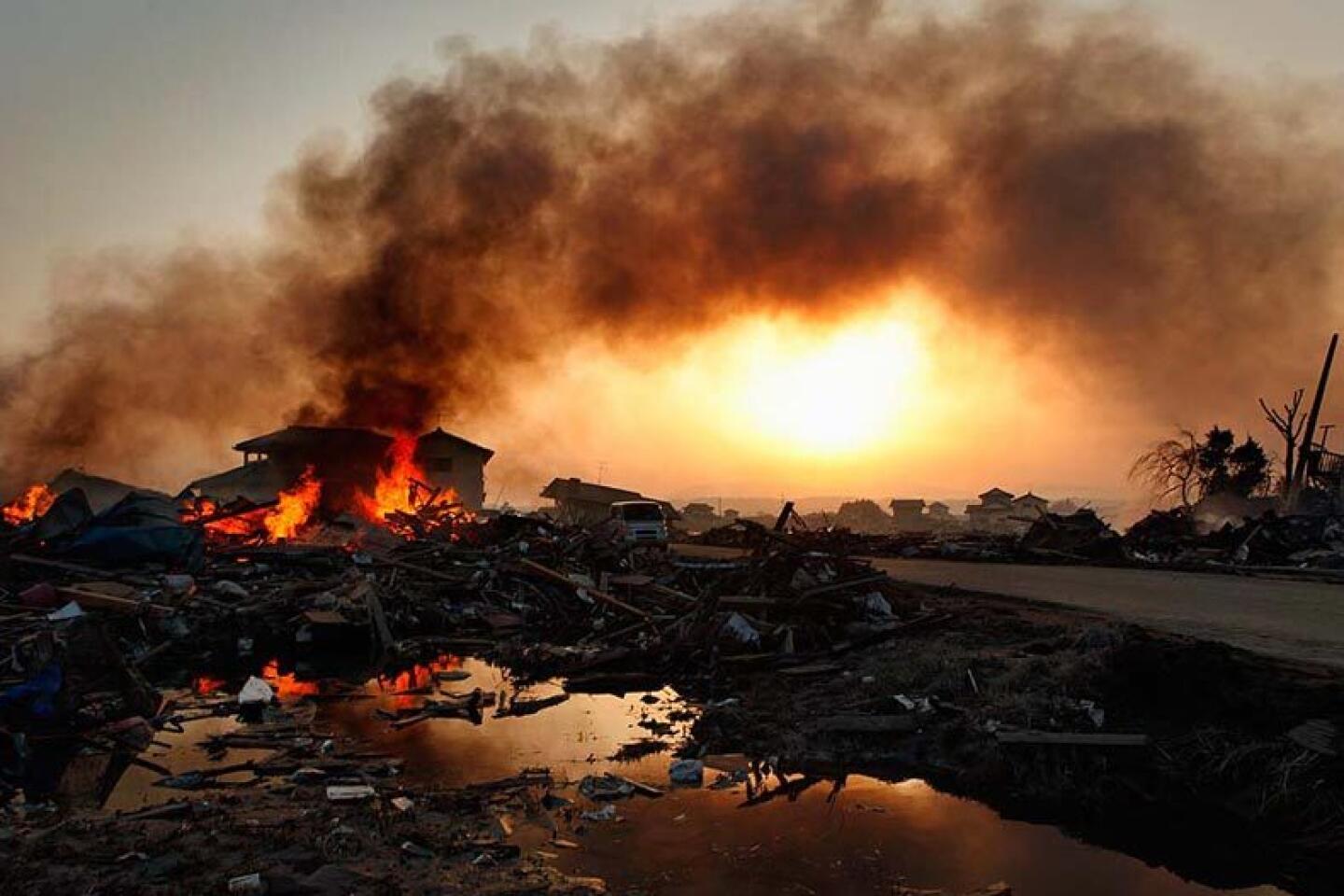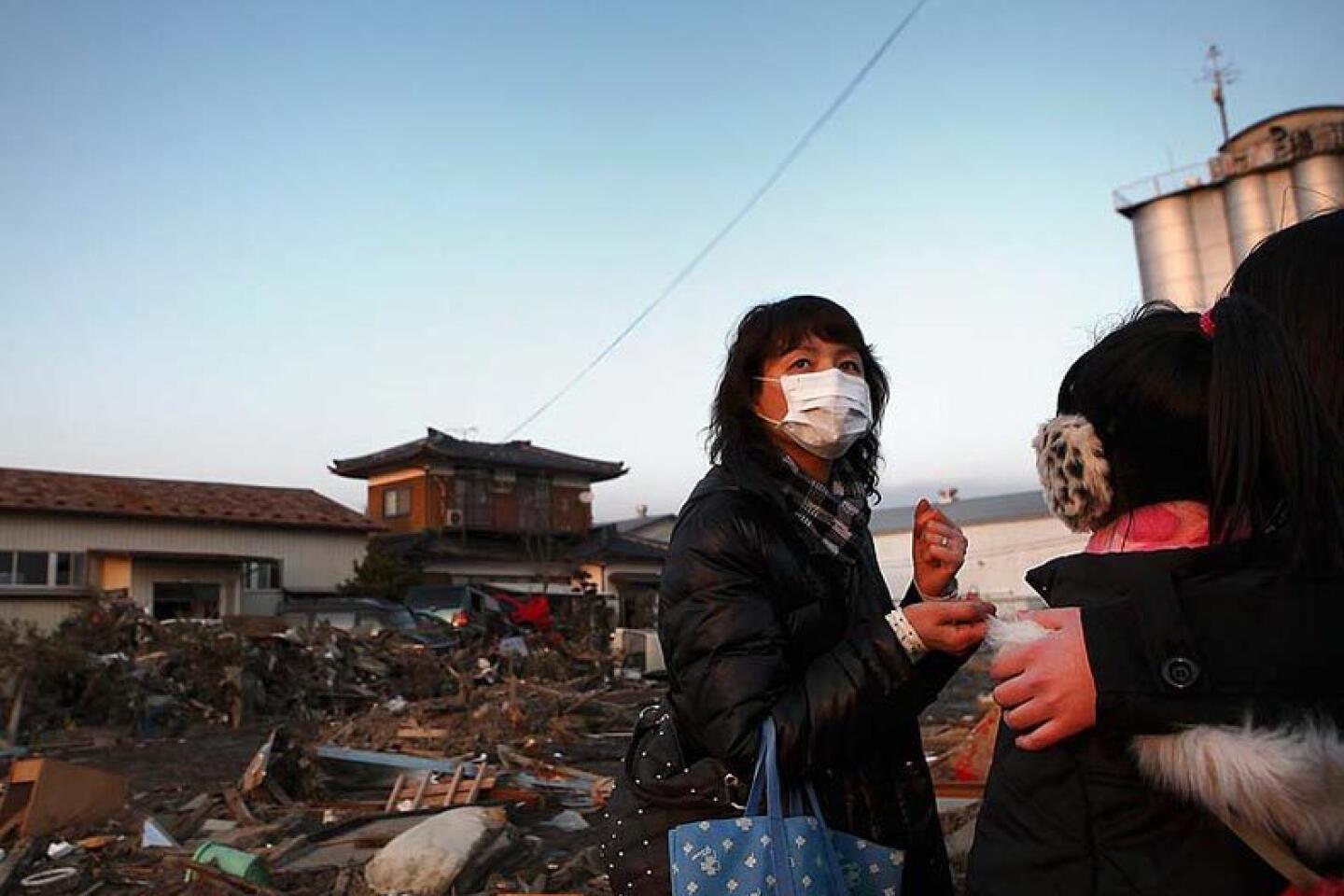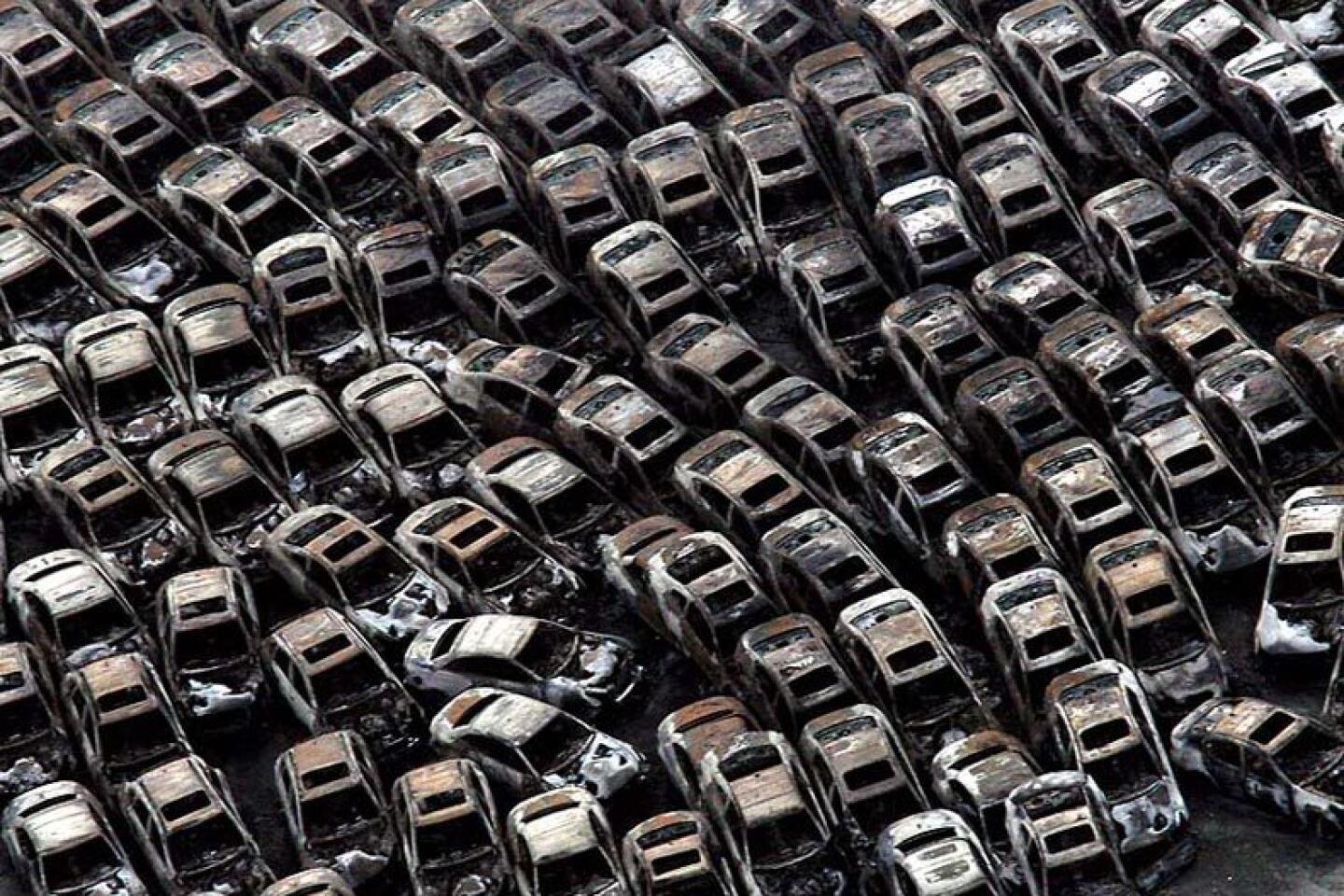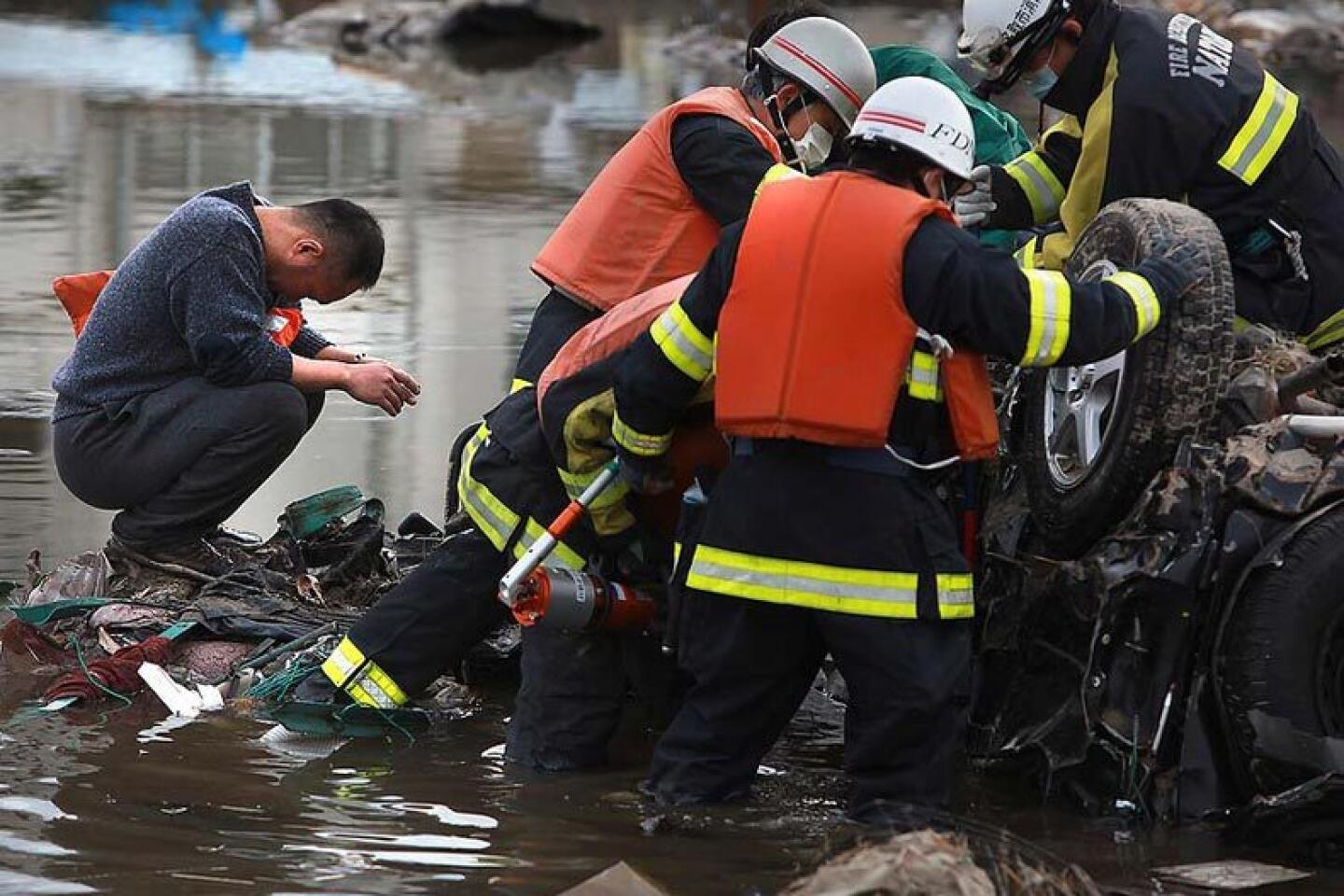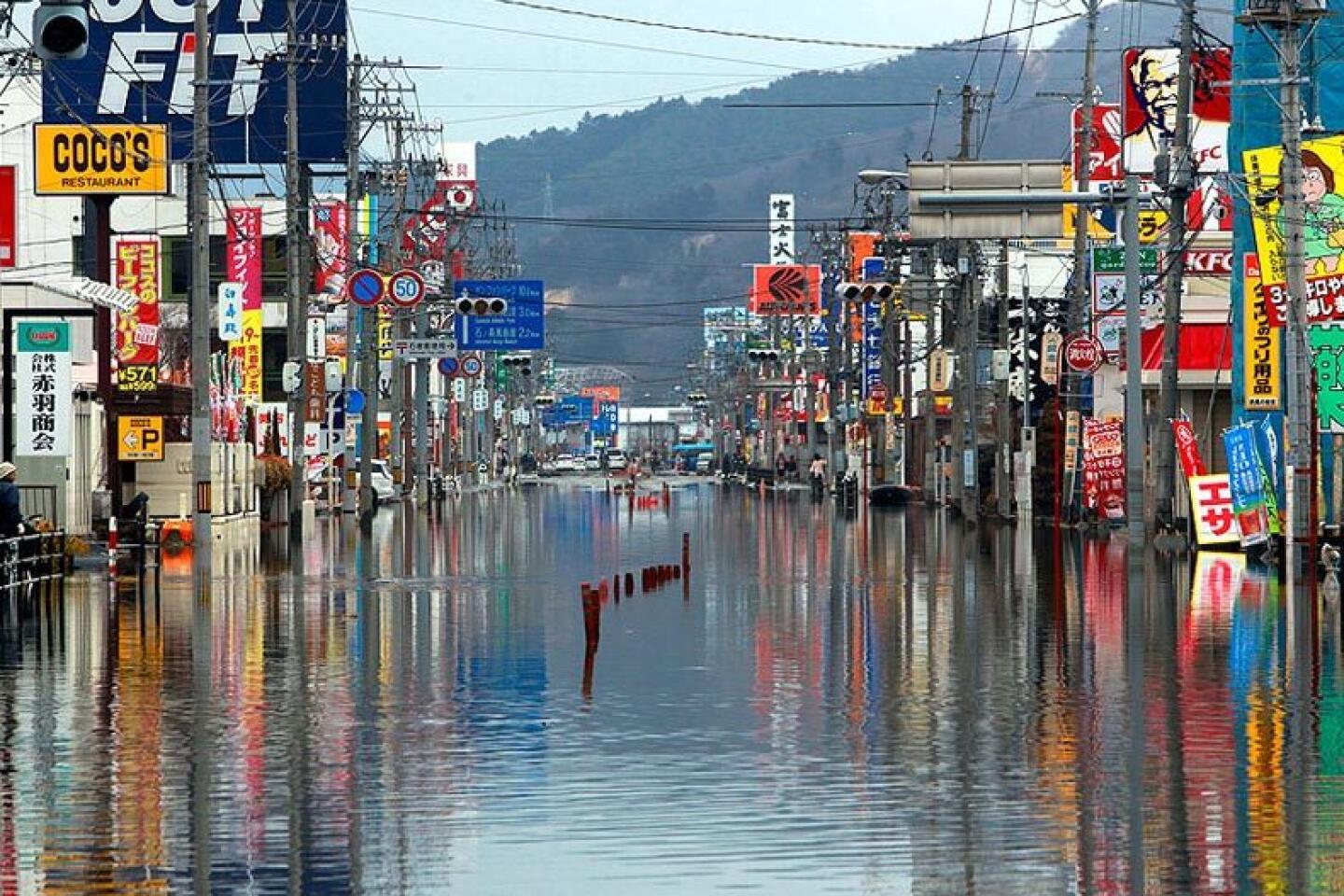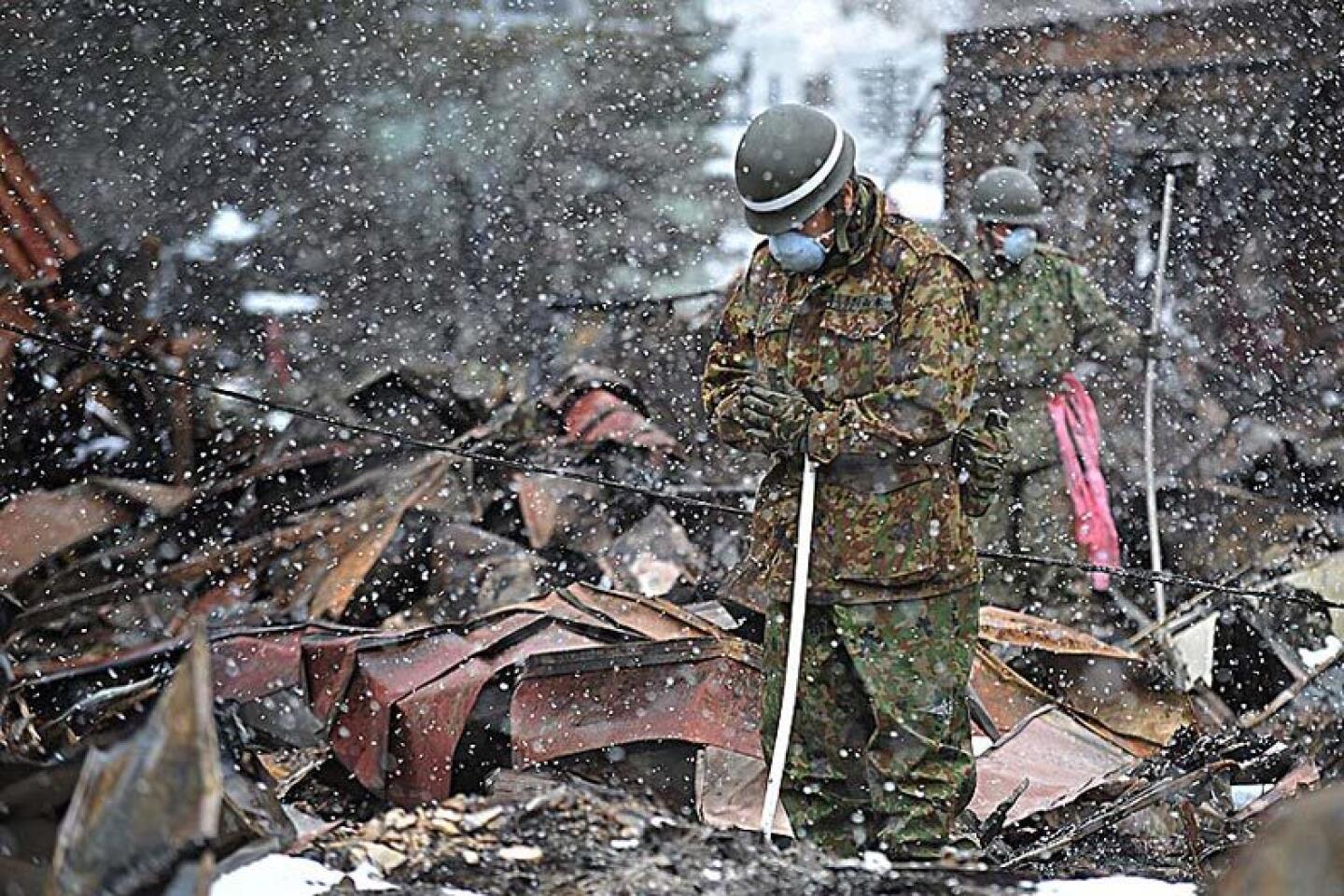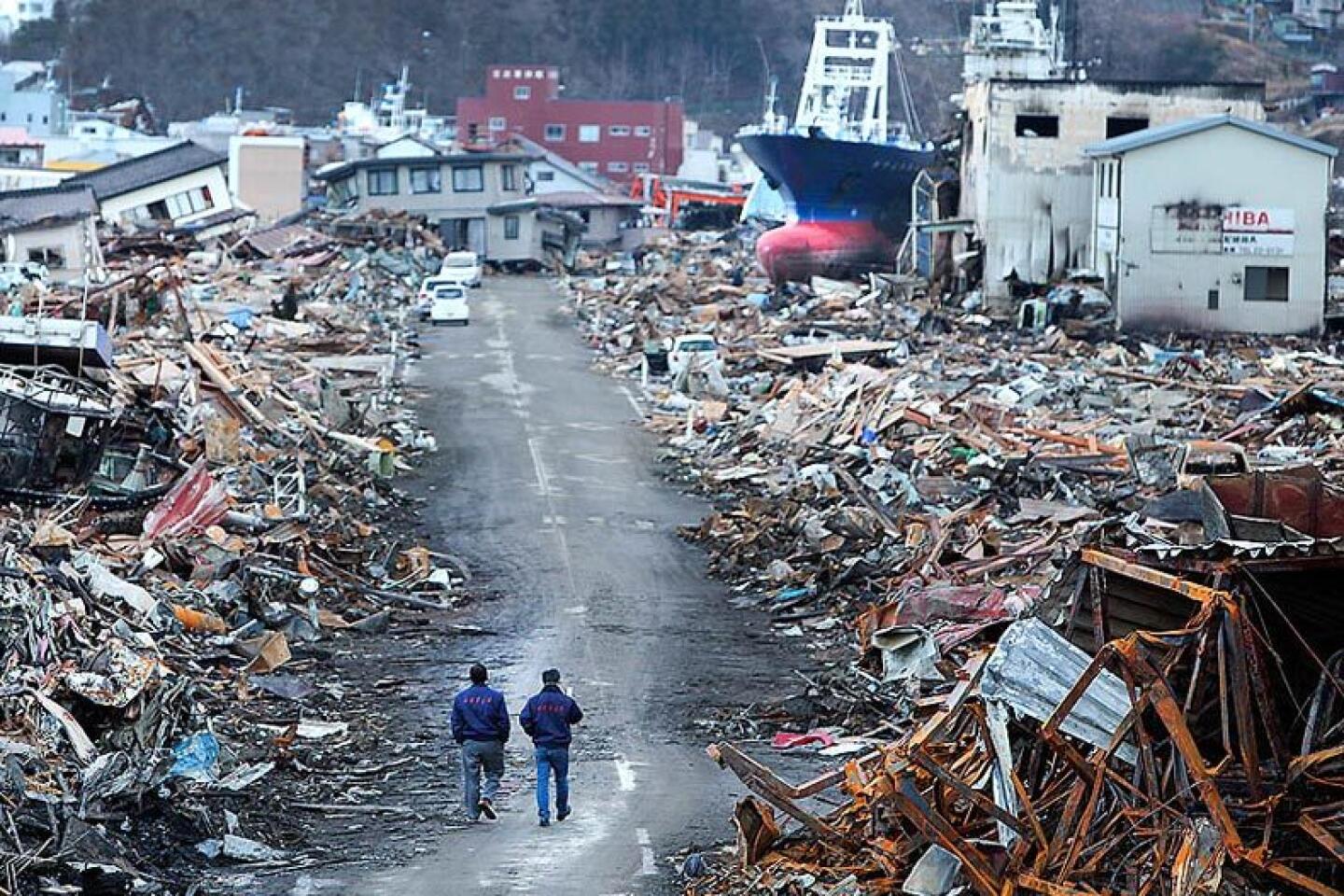From the Archives: A year after tsunami, a cloud of distrust hangs over Japan
- Share via
Reporting from Tokyo — Veteran fish seller Yoshito Shimada is under siege. At a grocery store in Tokyo’s Shibuya district, mothers pushing strollers demand proof that the daily catch isn’t from the waters off the stricken Fukushima Daiichi nuclear plant.
“I tell them the government checks the fish for radiation, but they don’t trust elected officials, or anyone,” said Shimada, his blue shirt stained with fish blood. “A year after the disaster, Japan is still afraid of its own food.”
Even in Tokyo, more than 200 miles from the northeastern region devastated by the March 11, 2011, earthquake and tsunami that caused radiation to spew from the nuclear plant, residents fear that local schoolyards are laced with dangerous isotopes.
Citizen collectives wander streets with dosimeters to make sure their neighborhoods remain radiation-free, conducting spot checks on fish and produce.
A year after the worst natural disaster in their country’s history, residents of Japan are still struggling to cope with the staggering toll of a catastrophe that left nearly 20,000 dead or missing. But a more insidious legacy may be a shaken trust — in their government, in their source of energy, and even in the food that sustains them.
“Many Japanese feel they’ve been lied to by their government,” said Mitsuhiro Fukao, an economics professor at Keio University in Tokyo who has written about the public loss of trust. “In a time of disaster, people wanted the government to help them, not lie to them. And many wonder whether it could happen again.”
Even though the tsunami had knocked out the cooling system at Fukushima, leading to meltdowns in three reactors, officials insisted that all was well at the seaside plant.
Recently released reports show that was far from the case.
Seeking to avoid a public panic, then-Prime Minister Naoto Kan and his advisors buried a worst-case assessment by the Japan Atomic Energy Commission that included the possible evacuation of Tokyo. Officials delayed disclosing key data and safety standards, leaving many Japanese not knowing whether their food chain had been contaminated.
A new report on Fukushima for the American Nuclear Society says the long-term health risks of the radioactive fallout will probably be minimal. But some Japanese aren’t convinced.
Suspicious of data provided by the government and news media, many people now conduct their own radiation research. They surf the Internet and seek out podcasts that offer alternative perspectives on the dangers and what to do about them. They flock to the Twitter accounts of nuclear scientists.
In what’s being called the “measurement movement,” people rushed to buy their own Geiger counters and dosimeters to check for radiation exposure. At a Tokyo electronics store, one salesman said he was amazed at how knowledgeable customers had become about the sophisticated equipment, with many asking numerous technical questions as if they were shopping for high-end stereo systems.
Yuko Kamine says she views her life differently than she did a year ago. “I worry about food safety,” the 29-year-old office worker said. “I want to live each day to the fullest. You never know when something like this could happen again, when you’re going to die.”
Some of the public’s fears are well researched, others less so. Sociologists report a “social stigmatization” of evacuees from the area around the Fukushima plant.
Evacuees in Tokyo and elsewhere have been looked on with suspicion as potentially exposing their new neighbors to radiation. Apartment dwellers have complained of cooking smells or noises that were unusual only in that they were produced by former Fukushima residents.
Experts say such responses to radiation aren’t new in Japan, the only country that has suffered a nuclear attack.
“After the bombing of Hiroshima, female survivors were seen as damaged and had a hard time finding husbands,” said Akira Tokuhiro, a Tokyo native and professor of nuclear engineering at the University of Idaho. “With Japan’s nuclear history, the stigma switch is easy to turn on.”
Even the trash left in the tsunami’s wake is a source of fear.
The landscape of northeastern Japan remains littered with 25 million tons of clothing, computers, stoves and car parts, shoved aside into massive unsightly mountains.
In many areas, the debris, known as gareki, equals what residents would normally create in 20 years. Only 5% of what the tsunami created has been removed. Fearing high levels of radioactive cesium, residents across Japan don’t want the debris buried or incinerated near their homes.
The government is offering to pay communities to accept the rubble, but there are few takers.
“The unseen enemy has aroused concerns that are more a matter of psychology than of science,” Yuriko Koike, a former defense minister, wrote in a recent editorial. “As the world’s only victim of a nuclear attack, Japan’s allergy to radiation is stronger than anywhere else.”
For decades, Japan was a seeming paradox: a country that had witnessed the horror of a nuclear attack yet was wholeheartedly committed to nuclear power. In the wake of Fukushima, that could change.
Anti-nuclear protests have attracted tens of thousands of angry citizens, many of whom are pressuring politicians to abandon their support for nuclear power.
Former Prime Minister Kan, a onetime supporter, now says Japan needs to reduce its reliance on atomic energy.
“We should have taken more adequate safety steps, and we failed to do so,” he recently said of the Fukushima meltdowns. “It was a big mistake, and I must admit that [the accident] was due to human error.”
In light of the disaster, the government has scrapped plans to build 20 more reactors by 2030. Only two of the nation’s 54 nuclear reactors are operating. Though the government once pledged to increase the supply of energy from nuclear power from 30% to 50%, many in Japan are pushing to reduce that figure to as close to zero as possible, said Daniel Aldrich, a Purdue University political science professor who specializes in Japan’s nuclear policy.
For decades, Japan was a seeming paradox: a country that had witnessed the horror of a nuclear attack yet was wholeheartedly committed to nuclear power. In the wake of Fukushima, that could change.
Anti-nuclear protests have attracted tens of thousands of angry citizens, many of whom are pressuring politicians to abandon their support for nuclear power.
Former Prime Minister Kan, a onetime supporter, now says Japan needs to reduce its reliance on atomic energy.
“We should have taken more adequate safety steps, and we failed to do so,” he recently said of the Fukushima meltdowns. “It was a big mistake, and I must admit that [the accident] was due to human error.”
In light of the disaster, the government has scrapped plans to build 20 more reactors by 2030. Only two of the nation’s 54 nuclear reactors are operating. Though the government once pledged to increase the supply of energy from nuclear power from 30% to 50%, many in Japan are pushing to reduce that figure to as close to zero as possible, said Daniel Aldrich, a Purdue University political science professor who specializes in Japan’s nuclear policy.
ALSO
From the archives: Quake plunges Japan into fear, hardship
Videos from the 2011 Japan earthquake
Photos: Scenes from the earthquake
More to Read
Sign up for Essential California
The most important California stories and recommendations in your inbox every morning.
You may occasionally receive promotional content from the Los Angeles Times.
